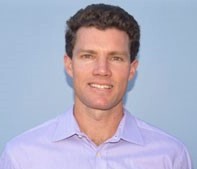MVM welcomes Jarrod Black, Accredited Exercise Physiologist to our team.
MVM welcomes Jarrod Black, Accredited Exercise Physiologist to our team.

Jarrod specialises in the delivery of exercise programs for the prevention and management of chronic disease or injury. He has been using his extensive knowledge of anatomy, biomechanics and physiology to provide safe and effective exercise advice to the Wynnum/Manly community for the past 15 years. Jarrod believes physical activity, and in particular strength training is vital to the prevention and treatment of many chronic diseases; as well as physical and cognitive decline.
Jarrod’s strength lies in his ability to accurately assess, monitor and progress his clients. Whether it be physical, emotional or environmental, Jarrod has the tools to overcome these barriers. From someone who has high cholesterol or pre-diabetes, to someone recovering from cardiac surgery, Jarrod’s experience and knowledge allows him to prescribe the correct type, duration and intensity of exercise to enable that person to make tangible improvements to their lifestyle.
An Accredited Exercise Physiologist (AEP) holds a four-year equivalent university degree and specialises in the exercise and movement for the prevention and management of chronic diseases and injuries. AEPs provide support for people with:
The differences are:
Accredited Exercise Physiologists in Brisbane are different by the possession of extensive knowledge, skills and experience in clinical exercise delivery and their ability to provide health modification counselling for people with chronic disease and injury.
Accredited Exercise Physiologists (AEPs) are university trained and have undertaken extensive training to treat clients with chronic conditions. AEPs do however treat those without any known conditions and help map out long term plans that help you achieve better health and prevent conditions such as diabetes and cancer.
Many AEPs are dual qualified as personal trainers, dietitians, physiotherapists, pilates instructors etc, they have the ultimate knowledge to help you use exercise effectively. Visit us to consult a professional physio in Brisbane.
Accredited Exercise Physiologists and Physiotherapists are both allied health professionals, however AEPs primary focus is to use exercise to prevent, manage and treat complex medical conditions. AEPs typically work with conditions such as (but not limited to): heart disease, diabetes, mental illness, delaying cognitive decline, some cancers, lower back pain, osteoporosis and osteoarthritis.
AEPs will utilise their skills in exercise prescription, combined with their training in behaviour change, to empower clients and assist them to manage their health independently. Their skills are particularly well received by clients who are looking to age well and age independently.
* Source:- Exercise and Sports Science Australia (ESSA)
Stay up to date with the latest practice news and health updates
Stay up to date with the latest practice news and health updates